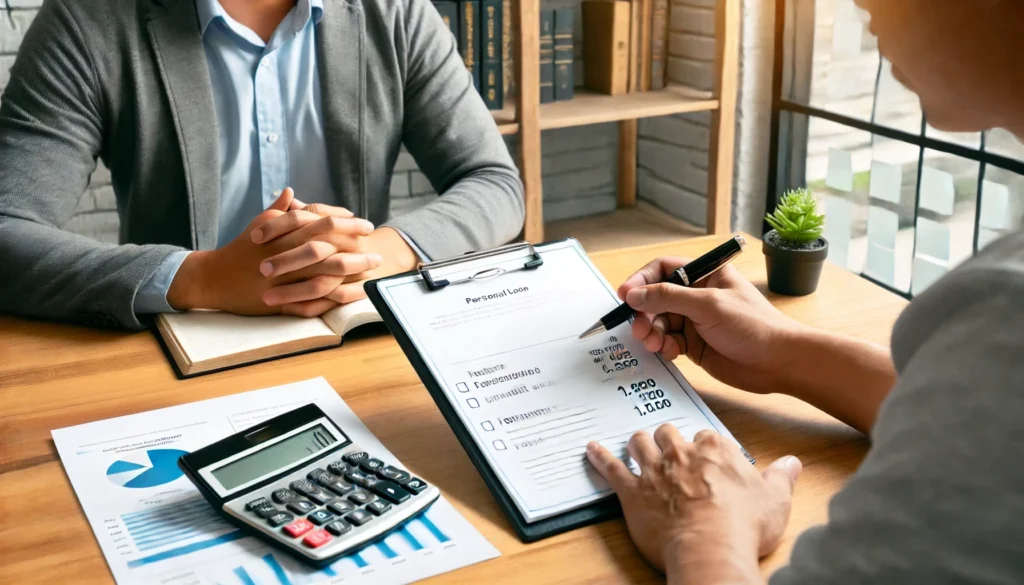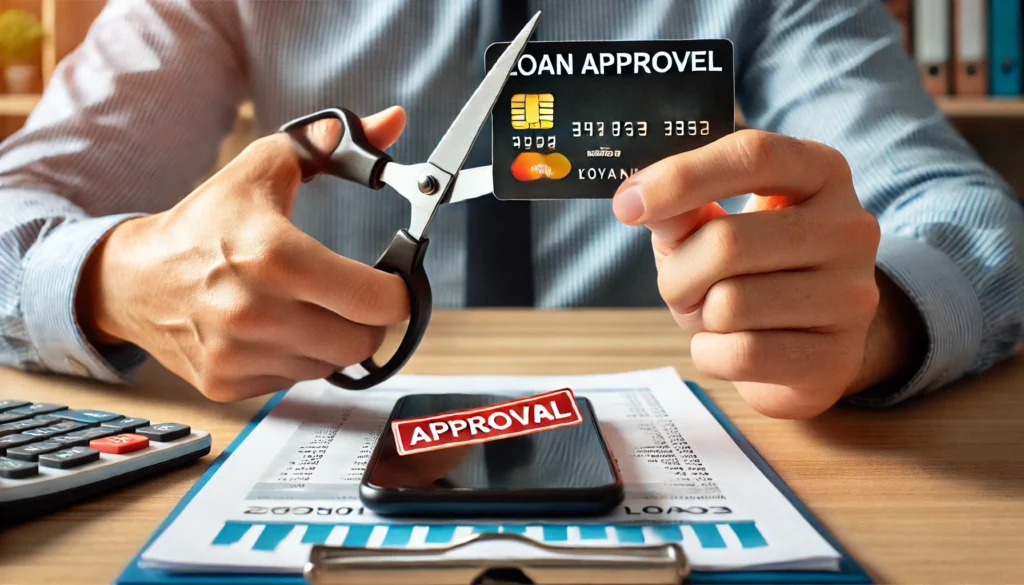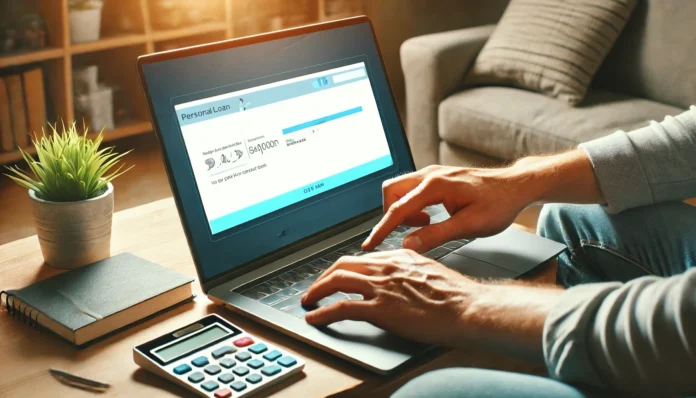Understanding the Appeal of a Personal Loan to Pay Off Credit Card Debt
Credit card debt can be overwhelming, especially when high-interest rates cause balances to balloon quickly. Many individuals look for ways to consolidate and manage their debt more effectively, leading them to consider a personal loan for credit card debt. This approach promises lower interest rates, structured repayment terms, and the potential to improve financial stability. However, while taking a personal loan to pay off credit cards may seem like a smart financial move, it is essential to weigh its advantages and potential risks carefully.
You may also like: Federal Direct Consolidation Loan: A Smart Strategy to Simplify Student Debt

The Pros of Getting a Loan to Pay Off Credit Cards
One of the most compelling reasons for considering a personal loan to pay off credit card debt is the potential reduction in interest rates. Credit card interest rates can often exceed 20%, while personal loans typically offer rates in the single digits or low teens for borrowers with strong credit profiles. By securing a loan with a lower interest rate, borrowers can significantly reduce the overall cost of their debt. Additionally, personal loans come with fixed repayment schedules, offering predictability in monthly payments and an eventual payoff date—something credit cards with revolving balances do not provide.
Another significant benefit is the positive impact on credit scores. When using a personal loan for credit card debt consolidation, the borrower’s credit utilization ratio—one of the most critical factors affecting credit scores—decreases. Since utilization is calculated based on credit card balances relative to credit limits, paying off revolving debt can enhance a borrower’s credit profile. Additionally, a diversified credit mix that includes both installment loans and revolving credit can further strengthen creditworthiness over time.
Furthermore, a personal loan can provide financial relief by simplifying multiple payments into a single, manageable monthly obligation. Many individuals find it challenging to juggle multiple credit card payments with varying due dates and interest rates. By consolidating debt with a personal loan, borrowers can streamline their financial obligations, reducing the likelihood of missed payments and late fees. This structured repayment method can help individuals regain control over their financial situation while working toward debt freedom.

The Risks of Using a Personal Loan to Pay Off Credit Cards
While a bank loan for credit card debt can provide benefits, it is not without risks. One primary concern is the potential for accumulating new debt. Many borrowers experience temporary relief from their financial burden after paying off their credit card balances but then revert to using credit cards irresponsibly. Without careful budgeting and financial discipline, individuals may end up in an even worse financial situation—now owing money on both their credit cards and a personal loan.
Another potential downside is the cost associated with personal loans. While interest rates on personal loans can be lower than those on credit cards, they are not necessarily low for all borrowers. Those with less-than-perfect credit may find themselves offered loan terms with interest rates comparable to or even higher than their current credit card rates. Additionally, some lenders charge origination fees, prepayment penalties, and other costs that can diminish the potential savings of using a loan for debt consolidation.
Moreover, transferring unsecured debt from credit cards to a personal loan does not eliminate the fundamental issue of overspending. A personal loan provides a temporary fix but does not address the behavioral patterns that led to the accumulation of credit card debt in the first place. For borrowers who do not adjust their spending habits, the cycle of debt can persist, potentially leading to even more financial strain in the long run.

Is It Better to Have a Loan Than Debt? Evaluating Long-Term Financial Health
When contemplating whether it is better to have a loan than debt, it is essential to recognize that all debt is not created equal. Credit card debt is revolving, meaning there is no fixed repayment term, and minimum payments can stretch out indefinitely, accumulating significant interest costs over time. In contrast, a personal loan has a structured repayment plan, ensuring that the debt will be paid off within a specified period, typically ranging from two to five years.
However, a personal loan is still a financial obligation that requires disciplined repayment. If a borrower fails to meet their loan payments, they risk damaging their credit score and facing collection actions, just as they would with unpaid credit card debt. Therefore, while a structured loan can provide a more predictable path to financial stability, it is only effective if borrowers commit to responsible money management and avoid accumulating new high-interest debt.
Practical Strategies for Successfully Using a Loan to Pay Off Debt
For those considering getting a loan to pay off credit cards, it is essential to implement sound financial strategies to ensure long-term success. First, borrowers should carefully assess their financial situation and determine whether they can afford the loan payments. Creating a realistic budget that accounts for all financial obligations will help prevent further financial difficulties.
Next, selecting the right lender is crucial. Borrowers should compare multiple lenders to secure the most favorable interest rates and loan terms. Online lenders, traditional banks, and credit unions all offer personal loans with varying requirements and rates. Individuals with strong credit histories may qualify for the most competitive terms, while those with lower credit scores may need to consider secured loans or alternative debt consolidation options.
Finally, implementing responsible financial habits is essential for preventing future debt accumulation. Cutting unnecessary expenses, creating an emergency fund, and utilizing credit cards wisely can all contribute to long-term financial stability. Instead of viewing a personal loan as a quick fix, borrowers should consider it part of a broader financial plan aimed at reducing debt and building wealth over time.
Frequently Asked Questions (FAQ)
What are the benefits of using a personal loan to pay off credit card debt?
A personal loan to pay off credit card debt can offer several advantages. One of the biggest benefits is the potential for lower interest rates, which can reduce the total amount paid over time. Unlike credit card debt, which often carries high variable interest rates, a personal loan typically has a fixed interest rate, providing more predictable payments. Additionally, consolidating multiple credit card balances into one loan simplifies financial management, reducing the chances of missing payments. Another advantage is that making regular payments on a personal loan can improve your credit score over time, especially if your credit utilization ratio decreases.
Is it better to have a loan than debt when dealing with credit card balances?
When comparing a structured loan to revolving credit card debt, a personal loan often proves to be the better option. A credit card loan tends to have high interest rates, leading to long-term financial strain if not managed effectively. On the other hand, a personal loan for credit card repayment comes with a fixed repayment term, making it easier to plan and eliminate debt within a set timeframe. Moreover, a personal loan requires consistent payments, fostering better financial discipline. While debt in any form requires careful handling, a loan can serve as a structured way to regain financial stability and prevent the cycle of accumulating more high-interest credit card debt.
How does getting a loan to pay off credit cards impact my credit score?
Getting a loan to pay off credit cards can initially cause a slight dip in your credit score due to the hard inquiry from the loan application. However, in the long run, it can significantly improve your credit health. By paying off high-interest credit card balances, you lower your credit utilization ratio, which is a major factor in your credit score calculation. Additionally, having a diverse credit mix—including installment loans like a personal loan—can positively impact your score. Making timely payments on the personal loan demonstrates financial responsibility, further strengthening your credit profile. Ultimately, the shift from revolving debt to a fixed-term loan can create a more favorable credit standing.
What should I consider before taking a personal loan to pay off credit card debt?
Before applying for a personal loan to pay off credit card debt, it’s essential to evaluate a few key factors. First, compare the interest rates of the loan versus your existing credit card rates to ensure it’s a cost-effective move. Next, consider the loan term—while a longer term means lower monthly payments, it could also mean paying more in interest over time. Additionally, assess your ability to commit to fixed monthly payments, as missing them can negatively impact your credit score. Lastly, review any fees associated with the loan, such as origination fees or prepayment penalties, to ensure they don’t offset the financial benefits of consolidation.
Can a bank loan for credit card debt prevent me from accumulating more debt?
While a bank loan for credit card debt can help consolidate and manage existing balances, it doesn’t automatically prevent future debt accumulation. To avoid falling back into debt, it’s crucial to adopt responsible spending habits. This includes budgeting effectively, using credit cards sparingly, and prioritizing savings to handle unexpected expenses without relying on credit. Some individuals find it helpful to close or reduce the limits on their paid-off credit cards to minimize temptation. Additionally, working with a financial advisor can provide strategies to maintain financial discipline and prevent the cycle of debt from repeating.
How does a personal loan for credit card repayment compare to balance transfer cards?
A personal loan for credit card repayment and a balance transfer card both serve as debt management tools, but they have distinct differences. A personal loan provides a lump sum with a fixed repayment schedule, ensuring structured debt elimination. In contrast, a balance transfer card allows you to transfer multiple credit card balances onto one card with a promotional low or 0% interest rate. However, once the promotional period ends, the interest rates can be quite high. Additionally, a balance transfer card requires discipline to pay off the balance before the promotional period expires, whereas a personal loan enforces a fixed repayment plan that eliminates debt over time.
What are some hidden costs to watch out for when getting a loan to pay off debt?
When getting a loan to pay off debt, it’s essential to be aware of potential hidden costs. Some personal loans come with origination fees, which can range from 1% to 8% of the loan amount and reduce the funds you actually receive. Prepayment penalties may also apply if you pay off the loan early, negating potential interest savings. Late payment fees can add up if you miss a due date, so it’s crucial to set up automatic payments or reminders. Additionally, some lenders offer variable interest rates, which could increase over time, making the loan more expensive. Understanding these potential costs in advance can help you choose a loan with favorable terms.
Are there psychological benefits to replacing credit card debt with a structured loan?
Yes, there are psychological benefits to replacing credit card debt with a structured loan. Having multiple high-interest credit card balances can cause stress and anxiety due to fluctuating interest rates and minimum payment requirements. A personal loan to pay off credit card balances provides a clear path to becoming debt-free, reducing financial uncertainty. The structured nature of a loan creates a sense of control and progress, which can boost confidence in financial decision-making. Additionally, simplifying finances through debt consolidation can lead to better overall financial well-being and reduced stress. Many individuals find that the shift from revolving debt to an installment loan brings peace of mind and a greater sense of financial stability.
How do lenders determine eligibility for a personal loan for credit card repayment?
Lenders consider several factors when determining eligibility for a personal loan for credit card repayment. Credit score plays a significant role, as higher scores often qualify for better interest rates and loan terms. Income level and employment stability are also crucial, as lenders assess the borrower’s ability to make consistent payments. Debt-to-income ratio is another important factor—if existing debts are too high compared to income, approval may be challenging. Some lenders also evaluate financial history, including past payment behavior and existing credit obligations. Understanding these criteria can help borrowers improve their financial standing before applying for a loan.
What are the long-term financial impacts of getting a loan to pay off credit card debt?
The long-term financial impacts of getting a loan to pay off credit card debt can be significant. Successfully paying off a personal loan can improve credit scores, making it easier to qualify for future loans with better terms. Lowering revolving debt can also free up financial resources for savings and investments, enhancing overall financial security. However, if new credit card debt is accumulated after consolidating with a loan, it can lead to an even worse financial situation. Proper budgeting and disciplined spending are essential to ensure that the loan serves as a stepping stone toward financial freedom rather than a temporary fix. In the long run, shifting from high-interest credit card debt to a well-managed personal loan can create better financial habits and a stronger financial future.
Conclusion: Making the Right Choice for Financial Well-Being
Getting a loan to pay off credit cards can be a viable strategy for individuals seeking to lower interest costs, simplify payments, and improve their credit profiles. However, it is not a one-size-fits-all solution. The effectiveness of using a personal loan for credit card debt depends on an individual’s financial habits, discipline, and commitment to avoiding new debt. Borrowers must carefully weigh the benefits and risks, ensuring they choose the most suitable approach for their financial well-being. By adopting responsible financial practices and planning for the future, individuals can use debt consolidation as a stepping stone toward long-term financial security.
debt consolidation strategies, financial planning tips, credit score improvement, personal finance management, responsible borrowing, credit card debt relief, financial discipline, money management techniques, budgeting for debt repayment, loan comparison guide, high-interest debt solutions, financial literacy education, managing revolving credit, personal loan benefits, credit utilization ratio, debt-free strategies, financial responsibility, structured loan repayment, avoiding debt cycles, smart financial decisions
Further Reading:
Smart strategies for repaying your student loan debt
Tips for paying off student loans more easily
How to handle student loan debt: 7 strategies
The information provided in this article is for general informational purposes only and is not intended to constitute financial, investment, legal, tax, or other professional advice. The content should not be relied upon for making any financial or investment decisions. Readers are encouraged to consult with licensed professionals, such as financial advisors, attorneys, or tax experts, to obtain personalized advice tailored to their individual circumstances. The author and publisher disclaim any liability for any actions taken or not taken based on the information provided in this article.





